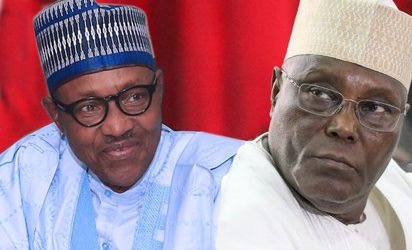
It will not be out of place to say that the February 23, 2019 presidential election in Nigeria was one of the most keenly contested polls in the country’s electoral history.
As in all such elections, the battle was one of supremacy. The ruling All Progressives Congress (APC) and the main opposition party, the Peoples Democratic Party (PDP) were at their wit’s end. Each wanted to outdo the other.
But what was supposed to be the deciding factor was not necessarily the smartness or deftness of the political players. Ideally, the electorate held and was supposed to hold the aces. It was on this strength that the concerned parties set sail.
They campaigned vigorously in their bid to have the electorate look in their direction. They sold their programmes and policies in order to win the sympathy of the voting public. That was the drama. That was the public show that played out.
But while all this was going on, those who were sufficiently familiar with the country’s recent political experience did not give the APC and its presidential candidate, Muhammadu Buhari, so much chance. Having been in the saddle since 2015, Buhari was no longer a new comer.
The people had seen the best and worst of him. And the preponderance of opinion had it that he performed below expectation. What rankled the most was his nepotistic disposition.
He divided Nigeria along ethnic and religious lines. It was a strange development which Nigerians were ill at ease with.
Interestingly, Buhari was squared up with Atiku Abubakar, a former Vice President of Nigeria, who had so much going for him. Atiku had the backing of the PDP, the big party that had been in charge at the presidency since the return of democracy in Nigeria in 1999. Like Buhari, he was Muslim and Fulani. On this score, what was supposed to be Buhari’s selling point was effectively neutralised.
And since Buhari had become notoriously unpopular, Atiku stepped in with his intimidating credentials. He had the reach, the deep pocket and the followership. He was the undisputed alternative to a failing Buhari. It was in this atmosphere of comparative advantage that Nigerians went into the elections.
However, as things turned out, Buhari was returned elected in the presidential election. This ran contrary to popular expectation. It belied the opinion of bookmakers. It contradicted what the opinion polls said. That was the beginning of the quagmire that we are in. While Buhari smiled home, Atiku and his party alleged brazen rigging and manipulation.
Issues around the claims and counter claims is what the Presidential Election Petition Tribunal has been dealing with for months now.
Atiku and the PDP approached the tribunal with a load of claims. The PDP had its own Situation Room where it kept a tab on the results of the election. From the final tally available to the party, Atiku defeated Buhari in that election with over one million votes.
To drive home its point, party contended that results were transmitted electronically to the server of the electoral umpire, the Independent National Electoral Commission (INEC). It challenged INEC to make its server available.
The electoral commission did not only deny PDP claims. It said that it had no server whatsoever. Again, that ran contrary to statements and declarations made by the commission as it prepared for the 2019 presidential polls. PDP did not have just the electoral commission to contend with, it prayed the tribunal to disqualify Buhari on the ground that he was not qualified to stand for the election in the first place. PDP argued that Buhari had no School Certificate, the minimum requirement stipulated by the constitution and electoral act for election to the office of president.
Beyond all this, Atiku and his party alleged manipulation and irregularities perpetrated by INEC and the APC, the combination of which shortchanged it ( PDP) and its candidate at the polls.
Essentially, the issues adjudicated upon were well laid out by the contending parties. The APC and PDP have taken time to argue their cases and made written submissions. The electoral commission was also fully represented in the matter. The matter is now at the doorstep of the presidential election petition tribunal.
As their Lordships prepare to deliver judgement on this matter, it is important to remind them of the testy nature of the assignment they have on their hands.
No doubt, the justices are experienced enough in matters of law. But the case before them is about the peace and progress of the country. As people who are experienced in the bar and bench, we expect the justices to abide by the age-old tenets of the law. Legal minds have told us that the law is an ass. It is no respecter of persons. What made certain authorities great and respected in the legal profession is their adherence to both the letters and sprit of law.
The pursuit of law demands that justice should be done and seen to be done in every matter. Anything that falls short of this is anything but justice.
We need not preach to the justices involved in this matter. But we dare say that they must shun politics in the discharge of their duties. Justice cannot be done if those whose duty it is to dispense justice allow the corroding influence of politics to creep into their minds.
Let this country for once be a reference point in jurisprudence. A few years ago, Kenya, an African country, was made proud by her legal minds when they painstakingly went through a legal battle such as the one we have on our hands and came up with a verdict that was foolproof . Even though it involved the deposition of a seating president, the world was satisfied with it because they saw that the justices were not biased. We are by no means suggesting to the justices the way to go. We are only insisting that the law should be uppermost in their considerations.
In fact, the justices have important matters to consider in order to arrive at a reasoned and incontrovertible judgement. Nigerians, indeed the world, are interested in the certificate saga that has been haunting president Buhari. Was he or was he not qualified to stand for the election? Does he have the certificates he claimed or not? Authorities of the West African Examinations Council have disowned the certificates being paraded by Buhari. Even the Army Council have said they never asked for or ever collected Buhari’s certificates. Do these disavowals matter or not in the case before their justices? What about the endless rigmarole that INEC was engaged in over its server?
The embarrassing doublespeak was clearly unbecoming of an electoral umpire. We need to know what went wrong. Why INEC had to engage in bare-faced somersaults.
Indeed, the matter before their justices needs to be thoroughly considerd. As we said earlier, politics must be taken out of it. What should count is justice. And this justice should not be bought or procured. It should be earned. When this is the case, Nigerians will have cause to celebrate their courts as true temples of justice.
Dickson writes from Kaduna.
Kindly contact us @ Naijalivetv@gmail.com
Call or Whatsapp: 07035262029, 07016666694, 08129340000



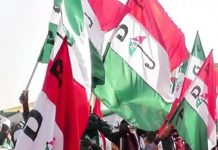
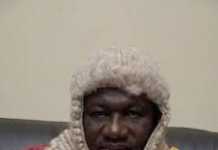
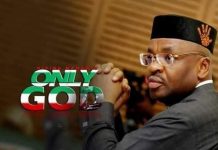
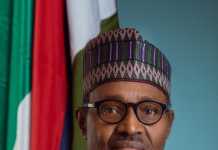
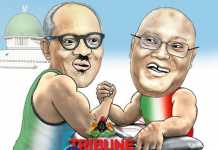
![[OPINION] Press freedom and aggravated hazards of journalism – Paul Ejime Press freedom](https://www.naijalivetv.com/wp-content/uploads/2024/05/IMG_0256-100x70.jpeg)

